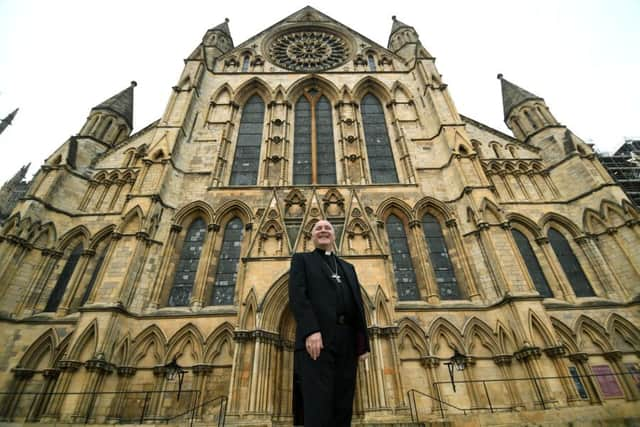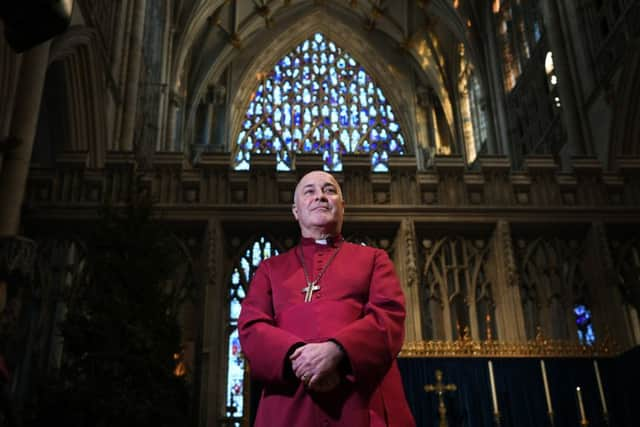Church record on diversity leaves room for improvement, admits next Archbishop of York
Stephen Cottrell, the current Bishop of Chelmsford, had always been one of the frontrunners to replace Dr John Sentamu when he steps down next June, but he was not the person some had hoped would be handed the second most powerful position in the Church of England.
The most charismatic minister of recent times should be followed at Bishopthorpe Palace by someone also drawn from outside the traditional recruitment pool, argued pressure groups, who proffered the names of the bishops of London and Ripon, the Right Reverends Sarah Mullally and Helen-Ann Hartley.
Advertisement
Hide AdAdvertisement
Hide AdHowever, Bishop Cottrell, a southerner who lived in Huddersfield for nine years, told The Yorkshire Post that he and Dr Sentamu were in many ways cut from the same cloth.


“I won’t pretend there is a bit of me that is not daunted,” he said.
“But I can’t think of a better man to follow. I’ve known him for years – since he was nobody. We share a similar outlook.
“However, I’m not him. I’ve got to do it in my own way.”
Their similarities were rooted in his record on diversity and in his support for the ordination of women, he said.


Advertisement
Hide AdAdvertisement
Hide AdBut he admitted that the church’s progress did not stand much scrutiny.
“ Our record is not good. There’s no point in pretending otherwise,” he said.
“I hope when I do hang up my mitre, the church will look different and more diverse.”
It was up to those in charge to make it so, he said at a press conference with the Archbishop of Canterbury, Justin Welby, at the Church of England’s headquarters, next to Westminster Abbey.
Advertisement
Hide AdAdvertisement
Hide Ad“Bishops don’t actually have very many powers at all, because the whole Church of England is very carefully set up to make sure nobody’s in charge,” Bishop Cottrell said. “One of the powers we do have is the power of appointment – and we need to use it much more generously and wisely to bring more people around the table.”
Describing himself “a boy from a very ordinary family, from a secondary modern school in Essex”, who did not know “how to end a talk without saying amen”, he promised to use his new role in York to “help the whole Church of England, but especially the churches of the North, to be more joyful, less anxious, and more effective”.
He said: “I am aware that there is there is a north-south divide and it is shockingly real.”
The voice of the church in political debate could elevate issues beyond mere politics, he added, hoping that he could “work alongside other leaders in the North to build coalitions of goodwill”.
Advertisement
Hide AdAdvertisement
Hide AdOf his predecessor, who had been given special dispensation by the Queen to remain in post for a year beyond the normal retirement age for an Archbishop, he said: “His are big shoes to fill, I do know that. But it’s not the shoes I’m worried about – it’s the big heart and the big vision. What he’s brought is joyfulness and engagement with ordinary people, and although I’ll do it differently, I do hope I will be to carry that on.”